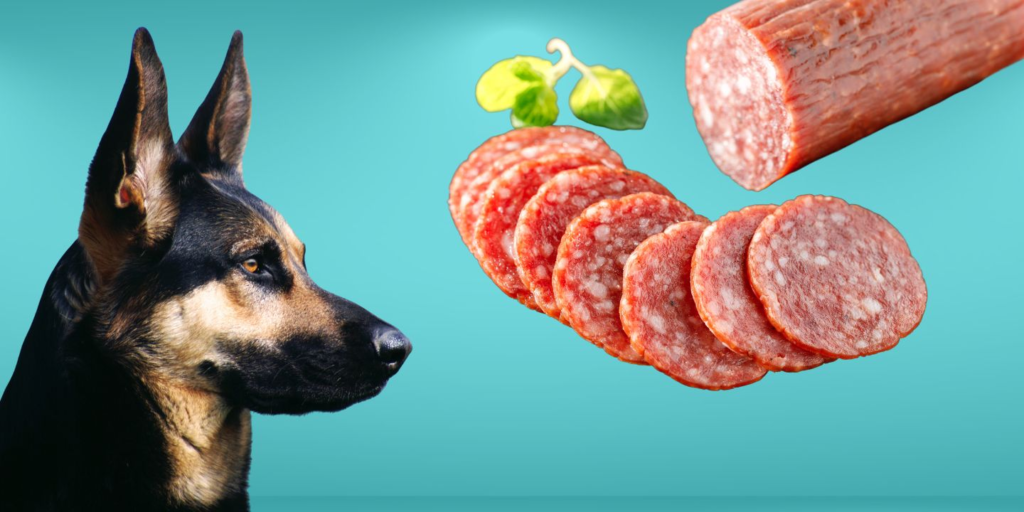
As dog owners, we often find ourselves tempted to share our favorite foods with our canine companions. However, it’s crucial to be aware that not all human foods are safe for dogs. One such popular food item is salami, a delicious cured meat enjoyed by many. In this article, we will explore whether dogs can eat salami, the potential risks involved, and provide guidance on making safe and healthy dietary choices for your furry friend.
The Risks of Feeding Salami to Dogs: While salami may be a tasty treat for humans, it poses several risks to dogs’ health. Here are a few reasons why salami should be avoided:
a. High Fat and Salt Content: Salami is typically high in fat and salt, which can be detrimental to a dog’s health. Excessive fat consumption can lead to pancreatitis, a painful condition that affects the pancreas. The high salt content can cause sodium ion poisoning, leading to symptoms such as excessive thirst, vomiting, diarrhea, tremors, seizures, and, in severe cases, even death.
b. Spices and Additives: Salami often contains various spices and additives, such as garlic and onion, which are toxic to dogs. These ingredients can damage a dog’s red blood cells, leading to a condition called hemolytic anemia. Symptoms may include weakness, lethargy, pale gums, and dark urine.
c. Processed Meats: Salami falls into the category of processed meats, which have been linked to an increased risk of certain health issues in both humans and animals. Regular consumption of processed meats may contribute to obesity, heart disease, and certain types of cancer in dogs.
Safe and Healthy Alternatives: While salami is not suitable for dogs, there are plenty of safe and healthy alternatives to treat your furry friend. Consider the following options:
a. Dog-Specific Treats: Opt for specially formulated dog treats that are specifically designed to meet your dog’s nutritional needs. These treats come in various flavors and textures, catering to different breeds and dietary requirements.
b. Lean Meat: Instead of processed meats like salami, offer your dog small portions of cooked, unseasoned lean meats such as chicken, turkey, or lean cuts of beef. Ensure that the meat is boneless, skinless, and free from any seasoning or additives.
c. Fruits and Vegetables: Many fruits and vegetables make excellent and healthy snacks for dogs. Offer bite-sized pieces of dog-safe fruits like apples, bananas, or blueberries. Similarly, vegetables like carrots or green beans can be steamed or lightly cooked to provide a nutritious and crunchy treat.
Consulting Your Veterinarian: As always, it is crucial to consult your veterinarian before introducing any new food into your dog’s diet. They can provide personalized guidance based on your dog’s specific health needs, breed, age, and dietary restrictions.
While salami may be a delectable treat for humans, it should never be offered to dogs. The high fat, salt, and spice content can pose significant risks to their health, leading to conditions such as pancreatitis or hemolytic anemia. Instead, focus on providing your furry friend with safe and healthy alternatives, such as dog-specific treats, lean meats, and dog-friendly fruits and vegetables. By making informed dietary choices, you can prioritize your dog’s well-being and ensure they lead a healthy and fulfilling life.